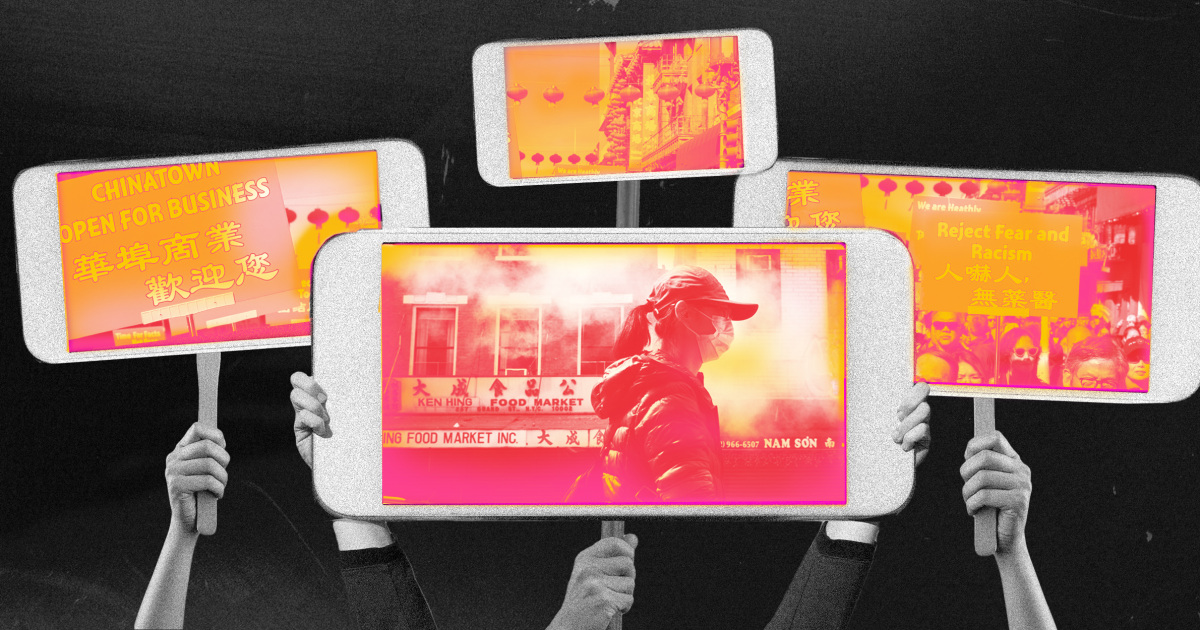
Stop AAPI Hate, for instance, allows people to document bias incidents on an online form, which can be accessed at any time on a phone or laptop. Compared to a hotline, the method is more cost-effective and less intimidating for those who may not feel comfortable discussing traumatic experiences with other people.
Some experts, however, say it’s just as important to reckon with the limits of digital platforms, which are often more adept at eliciting emotional reactions than facilitating difficult conversations about healing.
“Asians have had a harder time proving racism in a large part because, in general, people still don’t know the history and struggles of Asian Americans,” said Stewart Kwoh, president emeritus of Asian Americans Advancing Justice-Los Angeles, a civil rights organization that has been tracking anti-Asian hate incidents since the 1990s. “That’s the overwhelming problem we have to confront as a society.”
While social media has been “a game changer in the sense of establishing the extent of the problem,” he said, it’s been less effective at providing answers.
In recent weeks, some experts have criticized celebrities who called on their followers to help identify and arrest culprits of anti-Asian attacks, arguing that the approach could encourage vigilantism and increase policing in communities of color. Local leaders have also raised concerns about a large contingent of social media users who labeled many high-profile assaults as "hate crimes," despite having no evidence that they were racially motivated.
Because anti-Asian racism comes in many forms, Kwoh said, efforts to fight it cannot rely on law enforcement alone. Physical assaults, in fact, constitute a small portion of bias incidents reported to Stop AAPI Hate. Seven of 10 cases involve verbal harassment like name-calling. A multipronged strategy to keep Asian Americans safe, he continued, has to include stronger civil rights enforcement and funding for agencies like the Department of Housing and the Human Relations Commission.
But such nuances, Kwoh said, are not easily captured on social media, and bias can be difficult to prove.
To more accurately assess the causes and growth of anti-Asian incidents, Nguyen said, “we need more in-depth data on the Asian community as a whole with more mainstream media attention on why these problems are occurring.”
There also has to be a culture shift, she said, that begins with implementing more education initiatives.
On TikTok, Asian American teenagers have heeded this call, posting punchy explainers about the long history of anti-Asian xenophobia and the way in which seemingly innocuous microaggressions can easily lead to violence.
But the effort, Nguyen said, has to move beyond social media. Integrating Asian American studies into public school curricula is crucial, she said, because “it’s hard for people to empathize with our pain if they don’t know our stories.”
"Media" - Google News
March 05, 2021 at 06:00PM
https://ift.tt/2O6O9TZ
Asian Americans have often needed to 'prove' racism. Then social media video came along. - NBC News
"Media" - Google News
https://ift.tt/2ybSA8a
https://ift.tt/2WhuDnP
Bagikan Berita Ini















0 Response to "Asian Americans have often needed to 'prove' racism. Then social media video came along. - NBC News"
Post a Comment